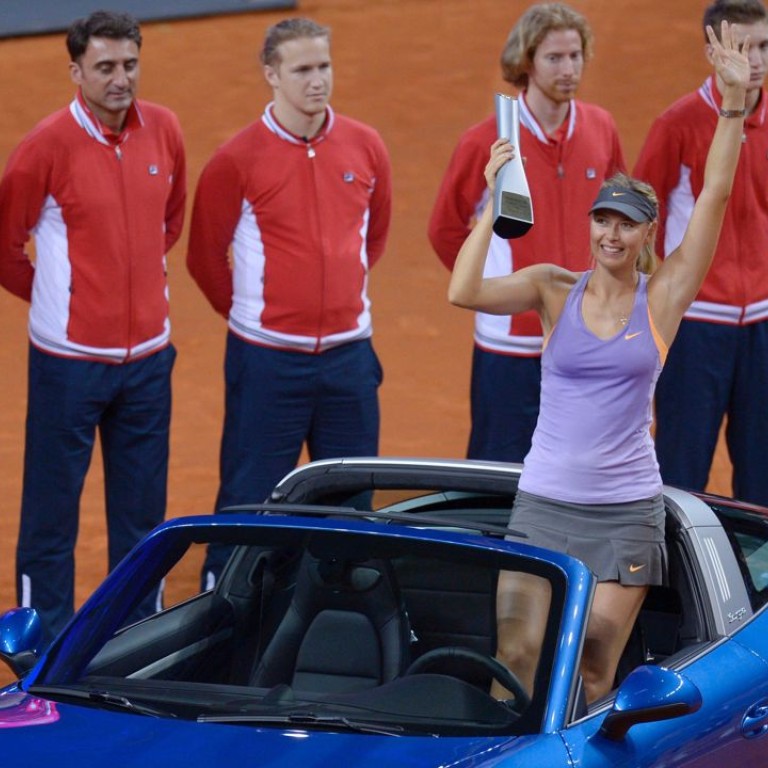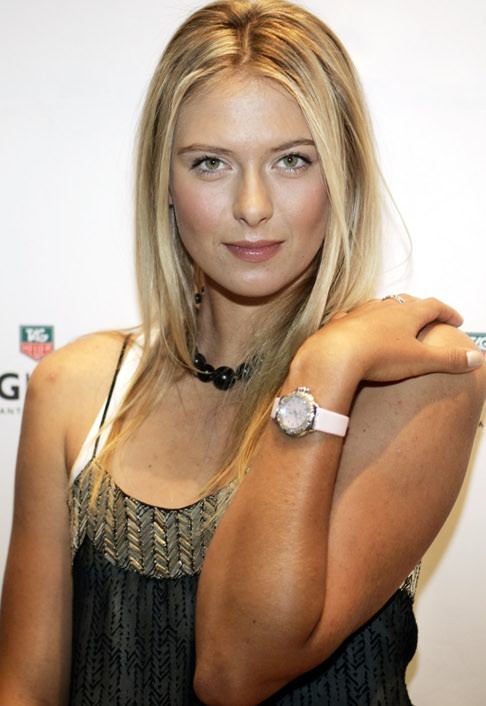
Key sponsors cut ties with Maria Sharapova after she fails dope test
Nike, Tag Heuer and Porsche move quickly to distance themselves from the five-time grand slam tennis star; more Russian sports stars test positive for drug meldonium
Three of Maria Sharapova’s major sponsors are cutting ties with the Russian tennis star after she acknowledged failing a doping test at the Australian Open.
Sportswear giant Nike, Swiss watch brand Tag Heuer and German luxury car company Porsche moved quickly to distance themselves from the five-time grand slam winner after she announced the positive test at a news conference in Los Angeles.
We are saddened and surprised by the news about Maria Sharapova. We have decided to suspend our relationship
“We are saddened and surprised by the news about Maria Sharapova,” Nike said. “We have decided to suspend our relationship with Maria while the investigation continues. We will continue to monitor the situation.”
Tag Heuer said its deal with Sharapova will not be renewed. The sponsorship expired at the end of this year and discussions had been taking place on how to extend it.
“In view of the current situation, the Swiss watch brand has suspended negotiations, and has decided not to renew the contract with Ms Sharapova,” Tag Heuer said.
Porsche said on Tuesday it has “chosen to postpone planned activities” with Sharapova “until further details are released and we can analyse the situation”.
READ MORE: Tennis superstar Maria Sharapova admits failing drug test at Australian Open, faces long ban

“I know that with this, I face consequences,” Sharapova said. “I don’t want to end my career this way, and I really hope I will be given another chance to play this game.”
The 28-year-old Sharapova said she has been taking meldonium, a blood flow-promoting drug, for 10 years for numerous health issues. Meldonium was banned because it aids oxygen uptake and endurance, and several athletes across international sport have already been caught using it.
Sharapova and all players were notified of the changes in the Wada banned substances list in December.

Sharapova is one of the top female players of her generation, with 35 career singles titles and over US36 million in career earnings. That earning potential is thought to be easily dwarfed by the earnings she generates from her commercial appeal.
Sharapova is thought to be the world’s highest-paid female athlete due to endorsement deals and her extensive business ventures, including a high-profile candy line, Sugarpova. Forbes estimated her earnings at US$29.5 million for 2015.
She’s a one-woman marketing machine. There are lots of male stars in the world, but not many female stars
“She’s a one-woman marketing machine,” said Nigel Currie, an independent UK-based sponsorship consultant. “There are lots of male stars in the world, but not many female stars.”
Currie said it’s “unbelievable” how such a mistake could have happened since Sharapova has such a big support network, adding that it’s also “amazing” how quickly sponsors react.
“They are paranoid about their image, and the slightest risk to their image, they run to the hills,” he said.

“It’s not my position to make public announcements, but there will be more cases,” the agency cited Mutko as saying.
He also said the ministry had warned Russian sports people before about meldonium being outlawed by Wada.
● Russian Olympic short-track speed skating gold medallist Semion Elistratov and five-time world champion speed skater Pavel Kulizhnikov have tested positive for meldonium, the R-Sport news agency reported on Tuesday.
● The Volleball Federation of Russia confirmed meldonium was detected in national volleyball team player Alexander Markin.
Additional reporting by Reuters

